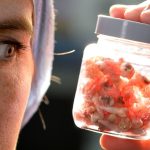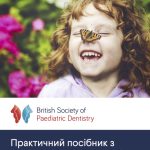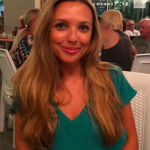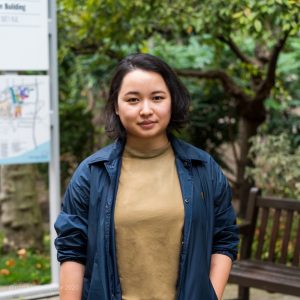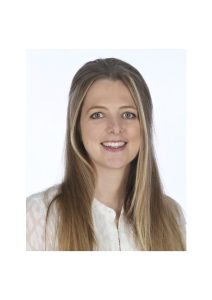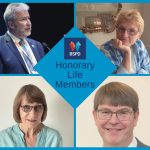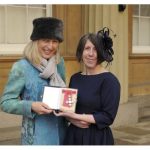British Society of Paediatric Dentistry to focus on children’s rights with inauguration of new president
As BSPD members prepare to gather for the first post-pandemic ‘in-person’ annual scientific conference in Sheffield, from 15-16 September, the Society welcomes president-elect, Dr Jenny Harris, who takes up the position of President of BSPD for 2022/3. Professor Sondos Albadri, the current president will hand over to Jenny and, as she takes over the reins, Dr Harris explains how children’s rights will be centre-stage for the Society during her presidential year. Jenny will be using her position as a springboard to lead discussion on a number of issues that affect children’s lives – and the following will be the three key areas of focus:
- Children’s right to information that they can understand about their oral health and wellbeing
- Children’s right to be protected from harm and the role dental professionals should play in safeguarding them from maltreatment
- Children’s right to extra help and special care if they have a disability
Insights based on clinical experience
Dr Jenny Harris is a Consultant in Community Paediatric Dentistry, at Sheffield Teaching Hospitals NHS Foundation Trust – and she will bring to her presidential role experience in a number of dentistry sectors including community dental services, as well as hospital and academic posts. Jenny leads a team working in a variety of clinic and school settings across Sheffield, often reaching children and young people experiencing significant health inequalities. Her clinical interests are in treatment provision for anxious children and those with extensive dental caries, and for children with communication impairment, learning disabilities and complex needs.
Dr Jenny Harris, said: “Most of my patients are referred by their paediatricians or other health or social care professionals because of their complex additional needs. It’s a privilege to build a rapport with families over time and see how, with the right support and preventive care in place, this can positively impact their oral health – with a good attendance pattern and reduced treatment needs going into adulthood.”
Dentistry’s role in safeguarding children
Paediatric dentistry in the UK owes a lot to BSPD’s President-Elect, Dr Jenny Harris. Her clinical background and research and teaching interests have seen her focus on safeguarding children, particularly producing pioneering guidance on child dental neglect. The NSPCC, in 2018, awarded her Honorary Membership of Council in recognition of her contribution to their work on health matters and ‘the development and promotion of safeguarding practice in dentistry’. In 2004 she initiated and led a project to develop an educational resource for dental teams, Child Protection and the Dental Team: an introduction to safeguarding children in dental practice (2006, updated 2013).1 This book, full of practical guidance, went to every dental practice in England, Scotland and beyond, and many changes in practice followed its publication. It remains available as a website, now hosted by the British Dental Association (BDA). More recently, Jenny with colleague Dr Jen Kirby developed a ‘Was Not Brought’ pathway to ensure children’s needs are considered in relation to missed appointments.2,3
Dr Harris is also hoping to oversee the publication of an update to BSPD’s dental neglect policy document4 during her year. This was first published in 2009, with Jenny as the lead author – and, as part of the working group, she is anticipating sharing the revised iteration soon.
UK paediatric dentistry – a year of challenges and opportunities
BSPD acknowledges that the coming year will offer both challenges and opportunities. The opportunity to host the first face-to-face post-pandemic annual scientific conference will allow members to gather and learn together. This is BSPD’s moment to bring delegates together and share insights. In the year ahead, Jenny is looking forward to the chance to work with the Society’s thirteen regional branches. The Society will also be reviewing and responding to members’ feedback from its recent priorities survey, an initiative instigated by Professor Albadri.
Dr Jenny Harris said: “Thankfully dental caries has declined over the years but still 25% of 5-year-olds have decay when they start school, and up to 56% in the more deprived areas. The pandemic has only served to worsen these inequalities. Now is the time to focus in earnest on improving oral health. Advocating for this is central to BSPD’s mission statement, alongside supporting the provision of high quality, accessible oral healthcare throughout the UK. However, challenges being faced by the profession across all sectors of dentistry include the struggle to manage the post-pandemic backlog of patients waiting for appointments – exacerbated by practitioners leaving the profession and difficulty recruiting new staff. Our general dental practitioner colleagues tell us that contract reforms need to go so much further.
“Services are under pressure and there is concern nationally about paediatric dentistry, particularly in relation to long waits for general anaesthesia. We urge dental professionals who care about children to stay with us during this difficult period. I want to encourage BSPD members to ‘weather the storm’ and continue doing the great job that they are doing. Furthermore, we must continue to train specialists for hospital and community posts in underserved parts of the country so that every child who needs to see a specialist can do so.”
Delivering on BSPD’s mission
Dr Jenny Harris will focus on continuing to deliver for BSPD on the Society’s mission and strategy. One of the first initiatives Jenny plans is to conduct a training workshop in collaboration with The UK Committee for UNICEF’s (UNICEF UK), Child Friendly Cities & Communities programme for BSPD’s Executive Committee – on upholding children’s rights – and then to apply that to the work of BSPD.
A personal perspective
When asked why she had dedicated over 30 years to paediatric dentistry in a career spanning clinical practice, teaching and research, Jenny said: “I feel that the simple satisfaction of restoring a child’s oral health is the driving factor. I enjoy teaching children the coping skills to manage dental procedures without anxiety. Providing continuity of care and building trust and rapport with families is very rewarding.”
Asked why she commits her time to the work of BSPD, Jenny said: “I believe that if you are in the room where decisions are made together, we can change things. I passionately believe we need to step up and make a difference for our patients. Early on in my career I was given advice that when you speak up that things aren’t right – you must also be prepared to be part of the solution. I’ve taken that to heart!”
References
- Harris J, Sidebotham P, Welbury R with Townsend M, Green M, Goodwin J and Franklin C. Child Protection and the Dental Team: an introduction to safeguarding children in dental practice. Sheffield: COPDEND, 2006 (website updated 2013). www.bda.org/childprotection
- Kirby J, Harris JC. Development and evaluation of a ‘Was Not Brought’ pathway: a team approach to managing children’s missed dental appointments. British Dental Journal 2019; 227: 291-297. doi: 10.1038/s41415-019-0621-z
- British Dental Association, Harris J, Kirby J. Implementing ‘Was Not Brought’ in your practice: a tool for safeguarding children who miss appointments. August 2019. www.bda.org/safeguarding
- Harris JC, Balmer RC, Sidebotham PD (2009). British Society of Paediatric Dentistry: a policy document on dental neglect in children. International Journal of Paediatric Dentistry 28(5): e14-e21. First published online: May 14 2009. doi: 10.1111/j.1365-263X.2009.00996.x e14-e21




